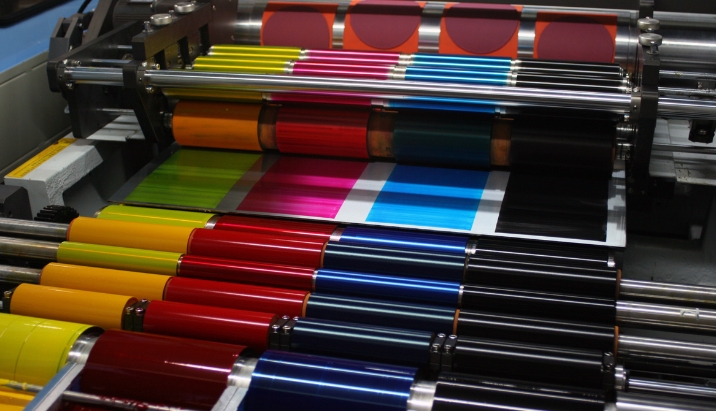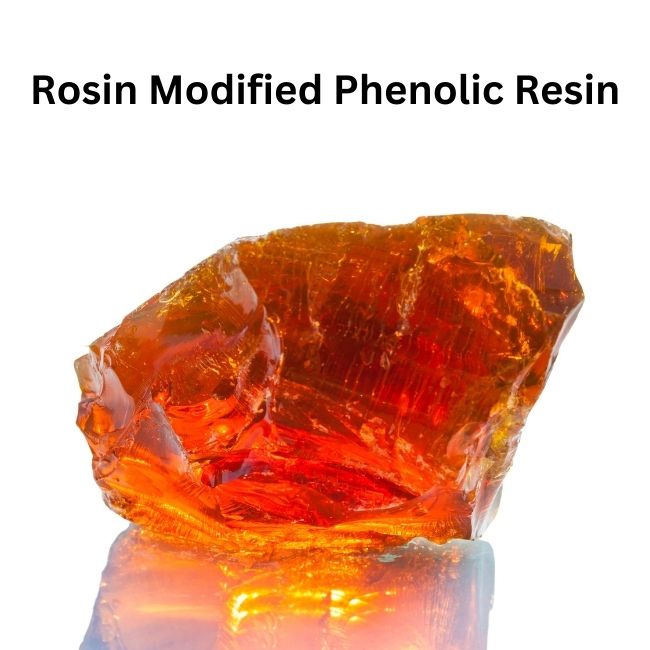
Printing ink formulations are an essential component in the production of quality printed materials, ranging from newspapers and books to labels and packaging. Achieving a long-lasting, stable and high-quality print requires the use of specialized ingredients, one of the most important being Rosin Modified Phenolic Resins. These resins are widely used in printing ink formulations due to their unique properties, including enhanced adhesion, durability and resistance to wear and tear. In this article, we will explore how resins contribute to long-lasting and stable printing ink formulations.
What is Rosin Modified Phenolic Resins?
Rosin Modified Phenolic Resins are a type of synthetic resin created by chemically modifying rosin with phenolic compounds. When combined with phenolic compounds, the result is a resin that has excellent thermal stability, water resistance and strong adhesion to different substrates. This makes Rosin Modified Phenolic Resins ideal for use in the formulation of printing inks, coatings, adhesives and more.
The use of these resins in printing inks enhances the final product’s durability, resistance to smudging and overall aesthetic quality. These benefits are critical in industries where the quality of print must withstand exposure to environmental factors such as moisture, friction and temperature fluctuations.

How Rosin Modified Phenolic Resins Enhance Printing Ink Stability?
Stability is one of the key factors when it comes to the formulation of printing inks. In order to create inks that perform well over time, resins must be chosen for their ability to maintain their physical and chemical properties during storage and application. Resins provide the following advantages that contribute to ink stability:
1. Modified Rosin Phenolic Resins Improves Viscosity Control
The viscosity of printing inks plays a significant role in ensuring smooth printing operations. If the viscosity is too low, the ink will flow uncontrollably, leading to uneven prints and waste. On the other hand, if the viscosity is too high, the ink may become difficult to apply, resulting in poor coverage and print quality.
Rosin modified phenolic resins help maintain the right viscosity in printing ink formulations, ensuring that the ink flows smoothly and evenly onto substrates. Their ability to adjust viscosity makes them highly beneficial in providing consistent print quality, even under varying temperature and humidity conditions.
- Viscosity Regulation: These Resins provide a stable viscosity that enables easy application and prevents common issues like clogging in printing presses.
- Control Over Ink Flow: These resins offer control over ink flow, preventing ink from running or smudging, which is essential for the creation of sharp, clean prints.
2. Modified Rosin Phenolic Resins Enhances Adhesion and Bonding Strength
One of the critical qualities is its superior adhesion properties. Printing inks need to adhere well to a variety of substrates, including paper, metal, plastic and more. The resin’s strong adhesive qualities improve the bonding between the ink and the surface, which is vital for ensuring that the print stays intact over time.
- Strong Substrate Adhesion: These resins enhance the adhesion of the ink to a variety of substrates, ensuring that the print doesn’t easily peel off or fade.
- Long-lasting Prints: The enhanced bonding strength contributes to long-lasting prints that are resistant to smudging, fading or wear, even with heavy handling.
3. Rosin Modified Phenolic Resins Offers Superior Durability and Resistance
Durability is an essential characteristic of printing inks, especially in applications like packaging and labels, where the printed material must withstand rough handling, exposure to moisture and other environmental stressors. Rosin Modified Phenolic Resins contribute to this durability by providing the ink with resistance to abrasion, temperature fluctuations and moisture.
- Wear and Tear Resistance: Rosin Modified Phenolic Resins improve the wear resistance of printing inks, which is crucial for labels, packaging materials and other printed products that may be exposed to physical stress.
- Moisture and Temperature Resistance: These resins enhance the ink’s resistance to environmental factors such as humidity and temperature changes, which can otherwise cause prints to smudge or fade.
4. Prevention of Ink Bleeding and Smudging in Rosin-Modified Phenol Resin
In printing, ink bleeding and smudging are common problems, particularly when working with high-speed presses. These resins help to prevent these issues by ensuring that the ink dries at an optimal rate and adheres properly to the substrate.
- Controlled Drying Time: The resin helps control the ink’s drying time, allowing it to stay workable during printing while ensuring it dries efficiently once printed.
- Smudge Resistance: By improving the drying rate and the adhesion of the ink to the substrate, significantly reduce the risk of smudging during the printing process.

How Rosin-Modified Phenol Resins Contribute to Long-lasting Print Quality?
In addition to enhancing stability and adhesion, Rosin-modified phenol resin also contribute to the overall print quality in the following ways:
1. Excellent Gloss and Finish
A glossy finish is highly desirable in many printing applications, particularly for labels, packaging and advertising materials. Resins are known for its ability to impart a high-quality gloss to the ink, enhancing the aesthetic appeal of the printed material.
- Gloss Enhancement: The resins help achieve a smooth, shiny finish, making printed materials more attractive and eye-catching.
- Consistency in Finish: These resins contribute to a consistent and even gloss across the printed surface, improving the visual quality of the final product.
2. Color Retention and Clarity
The clarity of the print and its ability to retain vibrant colors over time is essential for high-quality printing. Rosin modified phenolic resin improve the color retention of the ink by preventing yellowing or fading, which can happen over time due to exposure to light and other environmental conditions.
- Enhanced Color Stability: These resins improve the stability of colors, ensuring that printed materials maintain their vividness and clarity even after prolonged exposure to light.
- Prevention of Yellowing: Modified Rosin Phenolic Resins reduce the risk of yellowing, which is particularly important for applications that require long-term color retention.
3. Compatibility with Various Printing Techniques
Rosin Modified Phenolic Resins are versatile and can be used in different types of printing techniques, including offset printing, flexographic printing and gravure printing. This versatility ensures that manufacturers can rely on these resins for a wide range of printing applications.
- Offset and Gravure Printing: These resins are commonly used in offset and gravure printing applications, ensuring that the ink formulation performs optimally across different printing methods.
- Flexographic Printing: Resins are also compatible with flexographic printing, a technique commonly used for packaging and label printing.

Conclusion
Rosin Modified Phenolic Resins play a crucial role in enhancing the stability, durability and quality of printing ink formulations. By improving adhesion, viscosity control, durability and resistance to environmental stressors, these resins contribute significantly to the longevity and performance of printed materials. Whether used in offset printing, gravure printing or flexographic printing, it helps ensure that printed materials retain their quality and appearance over time, even under harsh conditions. Thus, as manufacturers and suppliers in the printing industry, understanding the benefits is key to producing high-quality inks that meet the demands of modern printing applications.
- Tridev Resins: Delivering High-Performance Synthetic Resins for Diverse Industrial Applications
- How Different Solid Content Levels in Water-Based Acrylic Emulsion Affect Performance?
- Polyamide Resins in the Printing Industry: Enhancing Performance for Specialized Inks on Challenging Surfaces
- Why Methylol Content Matters in Alkyl Phenolic Resins for Automotive and Leather Adhesives?
- How Rosin Modified Phenolic Resins Contribute to Long-lasting and Stable Printing Ink Formulations?



